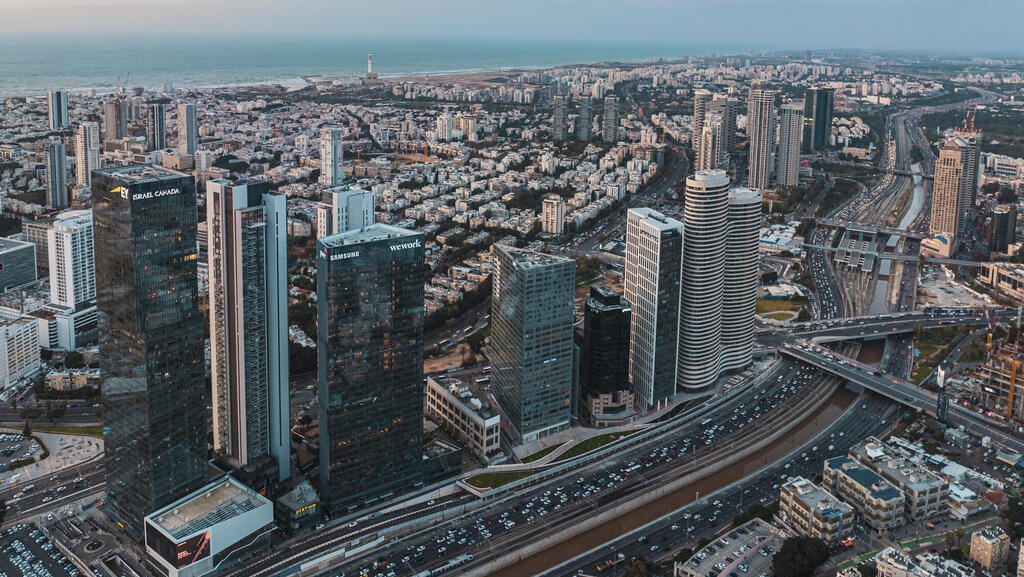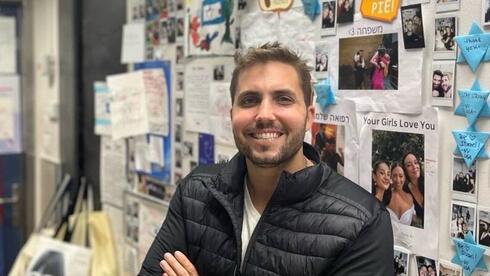
Israel-Iran War
New Iran battle reopens wounds for a high-tech generation still reeling from October 7
Soldiers still recovering from Israel’s previous conflict are now thrust back into a warzone - all while expected to resume their high-tech responsibilities away from the battleground.
Aaron Bours wasn’t in Israel when he heard about the October 7 attack. Across the ocean he was preparing to attend a conference in Las Vegas when he received an email from Delta: his flight had been cancelled. Still expected to take to the stage at that same moment, he became “zombified” and “petrified” as he realized something terrible had happened. Worse yet, that if Israel were to enter a fully fledged war with Hamas, his unit would enter Gaza without him.
Bours did return to Israel eventually to fight alongside his fellow reservists. He was even part of the second battalion to enter the warzone once the conflict accelerated. But within a month he would face devastating injuries to both his legs that would see him face a new battle: After being shot at by Hamas terrorists from within an UNRWA school, he would spend a year in recovery at Sheba Medical Center.
18 months after the October 7 attack, Israel is this time facing a graver threat to its existence with Iran - and the world’s eyes are looking at what will happen next. This time, Bours found himself overseas yet again - now for a friend’s wedding. The difference today is that he is unable to fight alongside his fellow reservists because he is still technically deemed critically injured. Even though he describes his injuries as “in stealth mode”, meaning outsiders may not identify them, the army deems him ineligible to fight.
Bours is only one of the 16,000 injured soldiers since October 7, many of whom are still in need of help post-hospitalization and mental health services to help with the trauma of the war that has engulfed much of the country. And while he considers himself one of the lucky ones by making a strong recovery and maintaining his position as CMO at conversational AI startup Hyro, he was promoted days before the attack took place but only discovered he was named for the role two months later, in a hospital bed. The dislocation between being a soldier in wartime and the psychological and emotional challenge of reintegration to “normal” life weighs heavily on him and others in Startup Nation.
“I needed to be back for my own mental health and my own feeling of rehabilitation,” he said about his return to tech after 17 months. “Not just for work and the survival of the startup, but the progress of my rehabilitative journey and my own mental and physical well-being. That took center stage in a way that it had never done before.”
Bours reentered the workforce knowing he cannot join others who are being called back to battle. And as Israel’s newest fight kicks into gear, its citizens have barely had time to catch their breaths - to a devastating social and economic degree: A February 2025 study suggests that approximately 3 million people among Israel’s adult population experience anxiety, depression, and symptoms of post-traumatic stress disorder since October 7.
Related articles:
An additional April 2025 study further indicated a dramatic increase in PTSD, depression, and anxiety among certain populations that are disproportionately affected by long-lasting and pervasive nature of psychological trauma, specifically, “Women, ethnic minorities (particularly Israeli Arabs, who comprise 18.1% of the population), and those experiencing traumatic loss, displacement, or economic hardship.” Startup Nation itself wasn’t immune to the perils of war: In the early days of the Swords of Iron War, 15-20% of Startup Nation was in war at any given time, indiscriminate of position, rank, duration, or role.
"A return to a new routine post- near death experience (NDE) is probably one of the hardest struggles amongst injured soldiers," he explained. "I’m often torn between tradeoffs, spending time in tech and marketing forums versus pursuing the mission of Israeli advocacy, and then most importantly, the prioritization of my own mental and physical rehabilitation."
For many who swapped out of the boardroom for the battleground, the recent return to more traditional work in safe environments can be jarring. The dual focus of personal recovery and the shared mission of a company’s success can create a duopoly that can be hard to balance. “There's the pride in what I've done, there's this self-inflicted guilt that I've been away for so long, and there's also the confidence in who I am now because of what I've been able to accomplish post-injury,” he explained. “There's also the self-doubt of wondering if I will get back to 100%.”
Bours described his return to full-time employment as “a cocktail of emotions” that needs to be worked through as the gradual return to normalcy is achieved. One part relies on giving yourself credit and keeping your foot on the gas, he says, but also remaining mindful about becoming too complacent or comfortable with the status quo. “Some people are too hard on themselves, they're really in a bad spot and they need those things,” he explained, referring to recovery programs in place to help with the adjustment. “But sometimes it can be a trap where injured soldiers essentially get stuck in this identity pool of being an injured soldier, and that's who you become.”
Recently, he has been flying to college campuses like Columbia and Princeton, stopped in London for a trip to some of their larger synagogues on behalf of Beit Halochem, representing injured soldiers. He also visited South Korea as part of a delegation via Restart, speaking in front of thousands of evangelical Christians and answering questions regarding the current conflict. "The impact felt next-level, the effort seemed well-revered," Bours said. "There is a high from getting on stage in front of people who genuinely want to learn about the situation on the ground here in Israel; there are cultural divides I feel I can bridge, as an American-Dutch-Israeli lone soldier who grew up in suburban New York, with experience across the tech sector, and firsthand knowledge of radical Islamic terrorism and its grave consequences as well as the urban warfare we face on our borders and beyond."
He believes that if that experience and background can cut through misinformation surrounding Israel, or turn 'hate' into what he describes as 'lukewarm understanding' then it is worth it.
Programs to help soldiers may include Friends of the Israel Defense Forces (FIDF), which provides support for the health, well-being, and education of reservists. There are also a myriad of programs from the private sector and within individual companies that help each employee with their own personal return to the workforce. That said, the inevitable symbiosis between wartime soldiers and high-tech employees remains, despite the trauma that one may evoke in the other.
“There are some executives and people who speak in military terms when talking about high-tech and business goals… and that takes on a new meaning,” Bours concluded. “This isn't war, guys, just calm down. \[Expressions like\] ‘I'm in the trenches with you’ and ‘I'm fighting with you’… No, these aren't trenches. This isn't that. Turn it down.”

